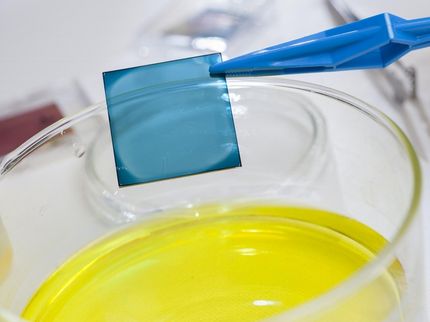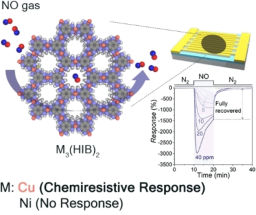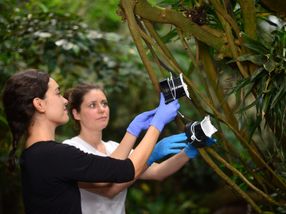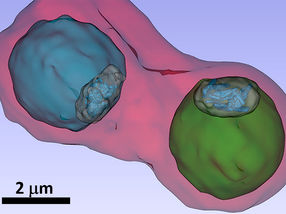Thin Films Developed at Ben-Gurion University Show Promise for Solar Energy Applications
Researchers at Ben-Gurion University of the Negev have developed thin films that exhibit carrier multiplication (CM). This development is of great interest for future solar cells. The films were synthesized at BGU by Prof. Yuval Golan and PhD student Anna Osherov of the Department of Materials Engineering and the Ilse Katz Institute for Nanoscale Science and Technology.
One of the important factors limiting solar-cell efficiency is that incident photons generate only one electron–hole pair, irrespective of the photon energy. Any excess photon energy is lost as heat. Carrier multiplication has been thought to be enhanced significantly in nanocrystalline materials such as quantum dots, owing to their discrete energy levels and enhanced Coulomb interactions.
In a letter recently published in Nature Physics, the BGU team demonstrated that contrary to this expectation, for a given photon energy, carrier multiplication occurs more efficiently in bulk PbS and PbSe films than in nanocrystalline films of the same materials.
“Films developed at BGU show CM, in which each incoming photon (tiny quantity of sunlight) creates more than one electron-hole pair. This can potentially be used for making more efficient solar cells,” he explains. “The new physics behind this work are that while CM has been mostly demonstrated in nanocrystalline materials ("quantum dots"), we now show that CM can be obtained also in single crystal ('bulk') films of lead sulfide and lead selenide.”
Notably, the films were prepared using chemical solution deposition, an attractive, inexpensive deposition technique for which the Golan group at BGU has received considerable recognition. The research was carried out as part of an international collaboration with counterparts in France and the Netherlands.
Original publication: J.J.H. Pijpers, R. Ulbricht, K.J. Tielrooij, A. Osherov, Y. Golan, C. Delerue, G. Allan and M. Bonn, "Assessment of Carrier Multiplication efficiency in bulk PbSe and PbS", Nature Physics 2009.
Most read news
Organizations
Other news from the department science

Get the chemical industry in your inbox
By submitting this form you agree that LUMITOS AG will send you the newsletter(s) selected above by email. Your data will not be passed on to third parties. Your data will be stored and processed in accordance with our data protection regulations. LUMITOS may contact you by email for the purpose of advertising or market and opinion surveys. You can revoke your consent at any time without giving reasons to LUMITOS AG, Ernst-Augustin-Str. 2, 12489 Berlin, Germany or by e-mail at revoke@lumitos.com with effect for the future. In addition, each email contains a link to unsubscribe from the corresponding newsletter.













![[Fe]-hydrogenase catalysis visualized using para-hydrogen-enhanced nuclear magnetic resonance spectroscopy](https://img.chemie.de/Portal/News/675fd46b9b54f_sBuG8s4sS.png?tr=w-712,h-534,cm-extract,x-0,y-16:n-xl)









































